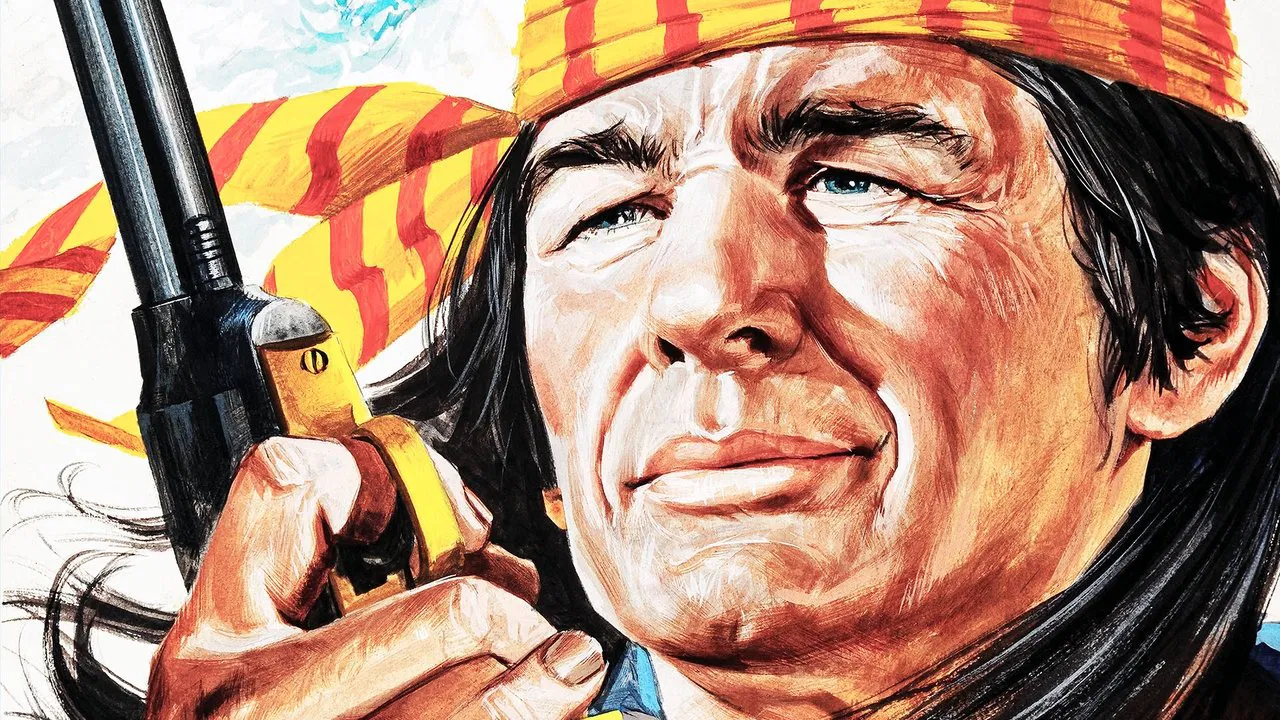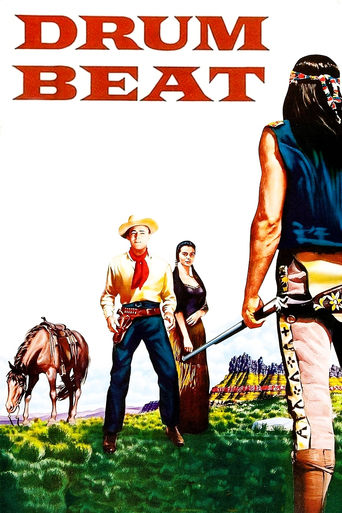

Captain Jack, the Modoc leader, is depicted as a murderous savage throughout, despite being somewhat admired by the white hero, Alan Ladd, yet the film fails to mention that until the early 1870's the State of California was still offering bounties on Indian scalps, men, women, and children.The Modocs had been deported to Oregon, and forced to share the reservations of their tribal enemies, and had only returned to their homes in California because they were being murdered.In fact, it was the white immigrants to California who had murderously attacked, enslaved, and persecuted the Modoc Indians, because they happened to live in "Gold Country," and the more-or-less official policy of the California Government was to "drive the native Indians into the sea," if at all possible, but in the meantime they could legally be sold and used as slaves, despite the fact that California was nominally a "Free" State.
... View MoreIf in Broken Arrow, Delmer Daves made of Cochise everything one could dream that a good leader should be, here he makes up for it with Captain Jack (Charles Bronson). Captain Jack is a warrior and sees everything from this point of view, and nobody better than Alan Ladd, an Indian Fighter to understand him. The Arizona landscape in Cinemascope is spectacular and the best moment of the film is when the soldiers are trying to climb a mesa where the Indians are on top. The film aged very well, but Delmer Daves has a problem with the ending of many of his films. The Last Wagon, The Hanging Tree and 3.10 to Yuma all were excellent, except for the final part. In this film when you expect to see great action moments after Captain Jack divides his men to confound the enemy, all that happens is instead told by one character. Marisa Pavan looks beautiful as Toby, the Indian girl that wants peace. There is a good dialog between Bronson and Ladd where they show mutual respect.
... View MoreThis film is not good treating the Indians, normally the directors in Hollywood in the past go to the facts or consequences of initial disagreement between Indians and whites but not to what whites did it with the Indians, i.e. the real cause of the problem. Did the director Delmer Daves try to show why and how the Modocs were moved from their reservation in Northern California to one in Oregon? Why did the whites move the Modocs from their home? What were the real causes of the war? Instead we have the consequences of mistreating Indians, a film with many Indians killed and so many white people wanting to make "justice". The Indians by themselves were always peaceful and this film shows an image totally absurd. Personally I do not know the whole history but it is doubtful that Captain Jack was a terrorist as he is shown. Even there is some incoherence the way Charles Bronson (Captain Jack) behaved during the battles and how presumably he killed General Canby with the other Captain Jack caught by the army and condemned. Reading a little bit about Johnny MacKay one may be doubtful about his so peaceful intentions as shown in the film. This material does not make any justice with the Modocs. When one sees such a film finally accepts that Marlon Brando was right.
... View MoreCatch the two great bookend sequences. They may be the most memorable part of this nicely produced Western purportedly based on fact. That opening sequence with McKay (Ladd) walking in unchallenged to meet President Grant is based on the historical fact that presidents have only been removed from the public in later times. Citizens back then could essentially walk in and talk to the president without a dozen pre-screens. Also, for this Bronson fan, that jail cell ending may well be the high point of his acting career. He shows more unforced good humor and naturalness there than any scene I've seen him in. In fact, he easily steals the movie from the rest of the cast, positioning himself as a real Hollywood comer.This is an A-production from Warner Bros. For example, scope out the well stocked cavalry troop. No corner-cutting there. Then too, lavish use is made of Sedona's familiar red rock locations adding real scenic value. Also, there's a much larger than usual supporting cast of familiar faces, even down to bit parts. Producers Daves and Ladd (uncredited) do a bang-up job assembling the many components.Surprisingly, for plot developments, the Indians actually get to win a battle and rejoice on- screen. However, the film's impact is damaged by being over-long, probably to accommodate a romantic interest to broaden audience appeal. Then too, Ladd, the actor, appears not nearly as interested in the film as Ladd, the co-producer. Frankly, he looks glum throughout the nearly two-hour running time, and I don't think it's from under-playing the part. Plus having him over-power the muscular, extremely fit looking Bronson is quite a stretch.Despite these several drawbacks, it's still a good scenic, action flick, the first of director Daves' series of superior Westerns.
... View More